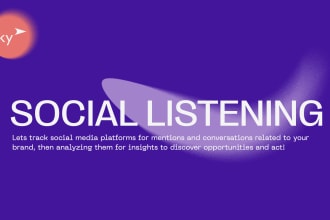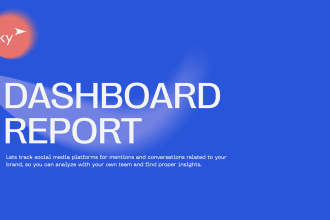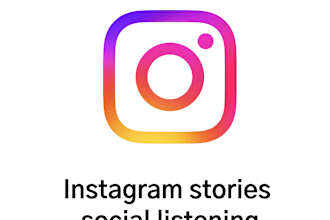Browse categories
Social Listening
Connect & engage with your community across the web, track trends and stay on top of brand mentions
|9 Results
Sort by:
Social Listening FAQs
What is Social Listening, and how does it work?
Social listening entails monitoring social media channels to discover brand mentions, find customer feedback, and uncover discussions surrounding your brand, competitors, or related keywords. Social listening helps you identify trends and analyze sentiments. It paints a clear picture of your brand’s estimated reach and share of voice and can be used to grow brand awareness, manage crises, and monitor your competitors. With this practice, you can use the data gathered to create data-driven decisions to help you grow your business. In a nutshell, social listening works by analyzing online conversations within the context of your brand. Aside from tracking tags and mentions, it also involves knowing the following: - Your audience. - What your customers want. - When people are engaging with your brand. - Why it’s being talked about. - How to create better customer experiences.
How does social listening benefit my business or brand?
Social listening lets you track audience sentiment in real time, allowing you to respond to positive sentiments or crises faster. It also helps you build a better relationship with your audience by giving you insights into their problems and how you can solve them. Monitoring conversations about your brand also opens opportunities to expand your network and collaborate with creators and thought leaders in your industry. Social listening also lets you know what the competition is up to, allowing you to uncover potential opportunities and address threats early on. Fiverr freelancers can help you use sentiment analysis for relevant keywords, track brand mentions, and identify critical information like audience demographics, top stories, and hashtags.
How can social listening help me understand my target audience and customers better?
Through social listening, you can gain insight into what your target audience wants from you. For instance, online conversations can reveal a pain point your brand can solve. It can also help you improve your offerings, giving you an idea of what customers are looking for and which solutions work for them.
Can social listening be used to identify potential brand ambassadors or influencers?
Yes. Social listening enables you to find people who have an affinity with your brand. Given the large volume of people using social media and other digital platforms, it can be difficult for brands to find the right people to help them achieve their goals. But with social listening, you can identify and narrow your list of potential ambassadors and influencers. Another way that social listening can help you find potential collaborators is by monitoring positive mentions. When someone frequently mentions your brand and shares positive feedback about it, this opens up an opportunity for a possible partnership.
Can social listening help me monitor and respond to customer complaints or negative feedback?
Social listening can be an invaluable tool that enables you to create better experiences for your audience. It lets you analyze your campaigns and determine which resonates most with your target audience. Furthermore, it enables you to tune into positive and negative sentiments about your brand. For example, if you identify positive mentions about your brand, you can respond to that user and start engaging with them. On the other hand, finding negative mentions provides you with an opportunity to address a crisis quickly and more effectively, identify your customer’s pain points, and use what you’ve learned about their experience to improve your product or service.
How can I use social listening to improve my content creation and social media marketing efforts?
Social listening can help you uncover insights and emerging trends, making it an indispensable tool for improving content creation and social media marketing strategy. Businesses often face a lot of competition, and there’s a growing need to provide your audience personalized experiences. Social listening gives you an idea of what the competition is doing, what your audience is looking for, and what topics they’re interested in. Access to such information can help you craft content that’s relevant, useful, and personalized.















